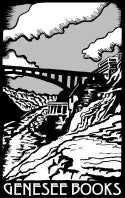what would Archie do?
Share
Archibald MacLeish, Poet Laureate of America, penned two short essays “The American Mobilization” and “The American Cause” published as a slim volume bearing the name of the latter essay. The blurb on the inner flap of the first edition’s dust jacket suggests “it is a striking example of the paradox of living literature; for it combines obvious timeliness with a timeless quality.”
Indeed.
It is an argument for what an American, in his case a man of letters, should do in the face of fascism. These short pieces were written in 1941, before the US was fighting in either theater of the war.
Bob Dylan, in Chronicle Volume One, called MacLeish the poet of night stones and dark, who along with Carl Sandburg and Robert Frost “defined the landscape of twentieth-century America. They put everything in perspective. Even if you didn’t know their poems, you knew their names.”
Dylan and MacLeish met, in 1968, at the poet’s suggestion, to discuss the younger bard possibly composing music for a play that he was writing. At their first meeting they discussed the Iliad, the poetry of François Villon, the greed and ambition of J.P. Morgan, MacLeish’s classmate General Douglas MacArthur, and Stephen Crane. Dylan was awestruck in the presence of this poet, educated at Harvard and Yale, who knew James Joyce. Dylan owned a first edition of Ulysses but never could bring himself to read it. He opts to be demure rather than ask MacLeish to explain the appeal of Joyce.
When they meet again Dylan brought some ideas for songs to the table. The play, Scratch, was dark. Dylan’s songs lighter. Their visions did not mesh. They shared a mutual respect, but a were at different places in life and wanted their art to serve different purposes. They never collaborated on MacLeish’s play but the songs Dylan brought to the table later took form as “New Morning” and “Father of Night” on the album New Morning.
Dylan was living in Woodstock at the time and raising a family. As he shared in Chronicles, “the events of the day, all the cultural mumbo jumbo were imprisoning my soul – nauseating me – civil rights and political leaders being gunned down . . . the streets exploding . . . the lying, noisy voices . . . the whole shebang.”
MacLeish’s 1941 essay is worth revisiting. What is the role of somebody that believes in the ideals of America to the core to do when faced with the events of 1941, 1968 or 2025?
In my mind these are two giants wrestling with large and ornate words.
Dylan was a family man in 1968. He didn’t want to “be in that group portrait” defined by resistance to the moment. MacLeish saw the struggle in starker terms. He was fighting against Nazism in 1941 “the first men in the five hundred years since Johannes Gutenberg Zum Jungen, Knight of Mainz, invented the art of printing – the first men to use the printing press, deliberately and systematically, as an instrument of confusion and deceit. They are the first men in the five centuries of printing to turn the printing presses, like machine guns, on the people.”
